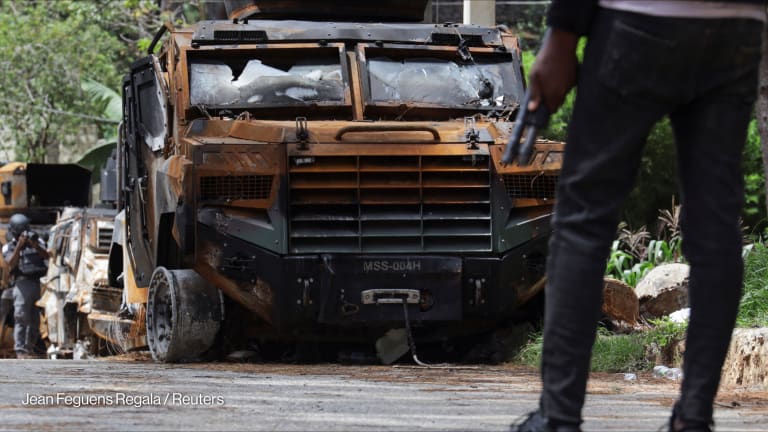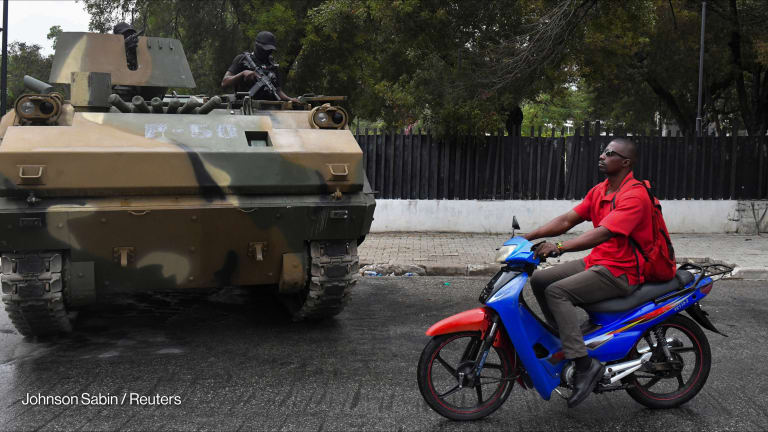The United Nations hopes to begin working this month with an armed Muslim group based in the
southern Philippines to free children from their ranks.
Radhika Coomaraswamy, the U.N. secretary-general's special representative for children and armed conflict, expressed optimism over the cooperation pledged by the Moro Islamic Liberation Front to stop recruiting and using children.
Coomaraswamy visited the Philippines for five days in December upon the request of the U.N. Security Council to secure the release of children from MILF and the New People's Army, two rebel groups listed for the recruitment of children.
The U.N. denounces the use of children as soldiers in armed conflict. Security Council resolution 1261, issued in 1999, affirmed the protection of children as a peace and security concern. In addition, resolution 1612, adopted in 2005, established a monitoring and reporting mechanism as well as the working group on children and armed conflict. Grave violations against children in armed conflict are killing or maiming, recruitment or use of child soldiers, attacks against schools or hospitals, denial of humanitarian access, abduction and rape and other grave sexual abuse.
On the U.N.'s watch list are Afghanistan, Burundi, Chad, Côte d'Ivoire, Central African Republic, the Democratic Republic of Congo, Haiti, Iraq, Lebanon, Occupied Palestinian Territory and Israel, Somalia, Sudan, Uganda, Myanmar, Nepal, Sri Lanka, Philippines and Colombia.
Ghazali Jaafar, MILF vice chairman, said his organization is ready to cooperate with the United Nations, but he insisted that MILF does not use children for combat.
"These are children of our MILF commanders," he added. "The presence of children in our camps is being misunderstood as having been recruited as child soldiers or combatants. The truth is they live there with their parents and they are not soldiers."
Coomaraswamy said the U.N. hopes to begin working with MILF on an action plan for the children's release this month and complete the first phase by the end of February.
"It is our hope and our belief that they want to get off this list. So that's why we feel they will cooperate," she said of the 12,000-strong separatist group that is fighting for the right of self-determination of the Bangsamoro people of Mindanao.
The U.N. special representative has yet to reach leaders of NPA, the armed wing of the Communist Party of the Philippines whose leader Jose Ma. Sison is in exile in the Netherlands.
"We do not know who to speak to," Coomaraswamy said.
She noted Security Council resolution 1612 seeks to eventually impose sanctions, including freezing assets, travel bans and arms embargo, against violators. Punitive action will affect these groups because they also want legitimacy for themselves.
"At some point they see themselves not as rebel groups. They see themselves as leaders of a whole province, of a nation. They want that legitimacy. They don't want to be on that terrorists' list," Coomaraswamy argued.
The U.N. official also lauded the Philippines for having strong laws on child protection but said they need to be implemented more firmly.
The Philippine government was likewise monitored due to reports of alleged involvement of children in the paramilitary Citizens Armed Force Geographical Units and community volunteer organizations operating in some conflict areas. Violations they observed included the recruitment of children under 18, keeping children in detention longer than the legally allowed 24 hours, and impunity, including a rape case.
Coomaraswamy said the government has vowed to issue a directive stressing that minors should not be recruited. She likewise urged the prosecution of security forces involved in the violations.
According to the U.N., there are 250,000 child soldiers worldwide, and 57 state and non-state parties recruit and use children for combat.








